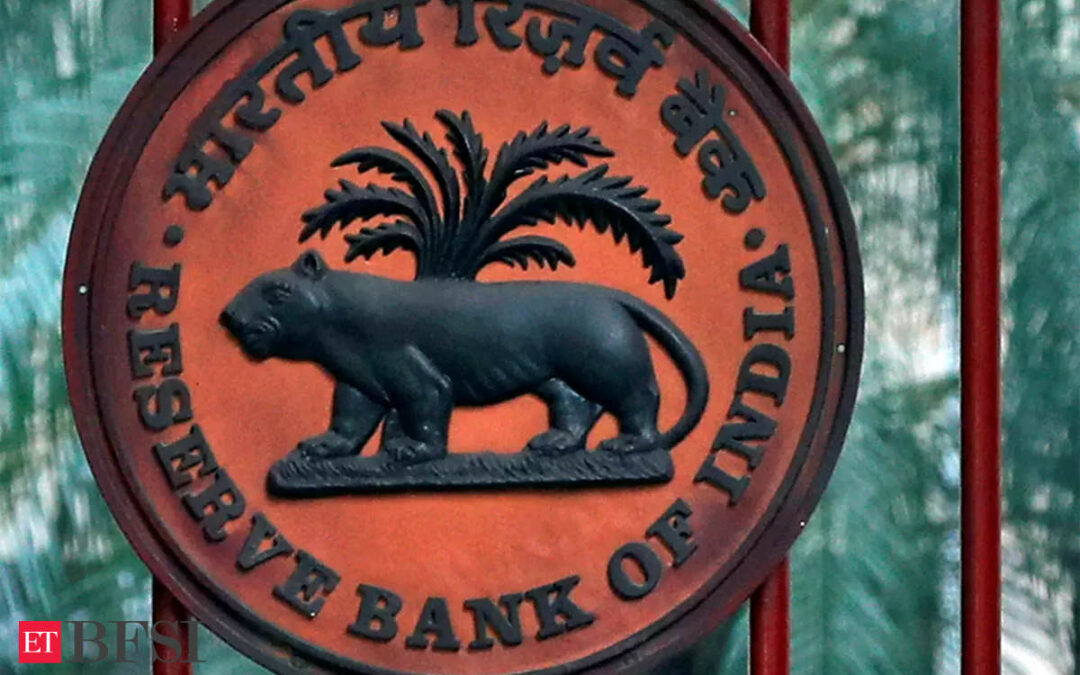Global card payment players like Visa and Mastercard are reaching out to the Reserve Bank of India for clarifications on business payments made through their networks, industry insiders said.
Simultaneously, fintechs offering business payment solutions are looking at alternative means to ensure their clients can continue to make such payments after the central bank asked companies to halt card-based settlements for business-to-business payments like vendor payments, payments made to suppliers, and such, sources said.
“Visa received a communication from the RBI on Thursday, February 8, in what appears to be an industry-wide request for information on the role of business payment solution providers (BPSPs) in commercial and business payments. That communication included direction that we hold all BPSP transactions in abeyance,” the company said responding to ET’s queries.
Visa confirmed to ET that they are engaging with the central bank to ensure compliance of all the processes.
“It is important to note that BPSPs are regulated and licensed by the RBI under the PA-PG (payment aggregators and payment gateways) guidelines,” the company spokesperson added.
Mastercard did not respond to ET’s queries till press time Wednesday.
BPSPs are fintechs that offer B2B payment services to enterprises, mostly through card rails, or systems facilitating electronic card payments.
High-value business payments are done mostly between bank accounts through net banking or gross settlement schemes like RTGS run by the RBI.
But to make the payment process simpler, some enterprises opt for fintechs’ services in collaboration with card schemes.
Multiple fintech startups are understood to have conveyed to their users that such transactions have been put on hold while some are looking for alternative compliant payment mechanisms to ensure business continuity.
“We have made some alternate arrangements which are fully compliant in nature to ensure that business payments as a whole are not disrupted,” said Ajay Adiseshann, chief executive officer of Paymate, a major player in the business payments space.
Paymate, backed by Visa, has in-principle approval from the RBI for a payment aggregator licence.
No clarity on reasons
As the exact reason for the RBI’s action remains unclear, it has triggered speculations and concerns among fintechs.
One startup founder who operates in the B2B payment space said the problem could be from the fact that cards as a payment instrument are being used to transfer funds to accounts that are not authorised for such transactions. It could be an issue of improper KYC (know your customer) for these merchants to whom the card payments are being made, the person said.
Another founder impacted by the move said, “Some of the players using this service might not have received the in-principle approval from the RBI for payment services, maybe that is why the regulator stepped in.”
There are speculations that cards used as a mode of payment for tuition fees and rental payments and such could also be under scrutiny of the RBI. Platforms like Cred and NoBroker allow rental payments through cards.
While the industry has taken a stance to stop these payments, fintechs are also worried about the regulatory scrutiny impacting their business.
B2B payments on card rails have been happening for a while now and multiple startups like Paymate, Enkash, and Karbon offer such services.
“Everything is happening within banking circles only, transactions are being done from one bank account to another, which are all KYC-ed instruments, so we believe that there must be some clarity which the RBI needs regarding this business,” said one of the founders quoted earlier.
But post the regulatory action on Paytm Payments Bank, the fintech industry is on high alert and is not ready to take any chance with compliance lapses.
“The RBI’s continuous focus on a strong compliance mechanism through a robust KYC solution in place implies that businesses need to adopt a compliance-first approach for sustainable growth,” said Ankit Ratan, cofounder of Signzy, which offers digital onboarding infrastructure for merchants and consumers. “Such regulatory hurdles can be avoided by adhering to the regulator’s rules and guidelines through innovative KYC solutions,” he said.









